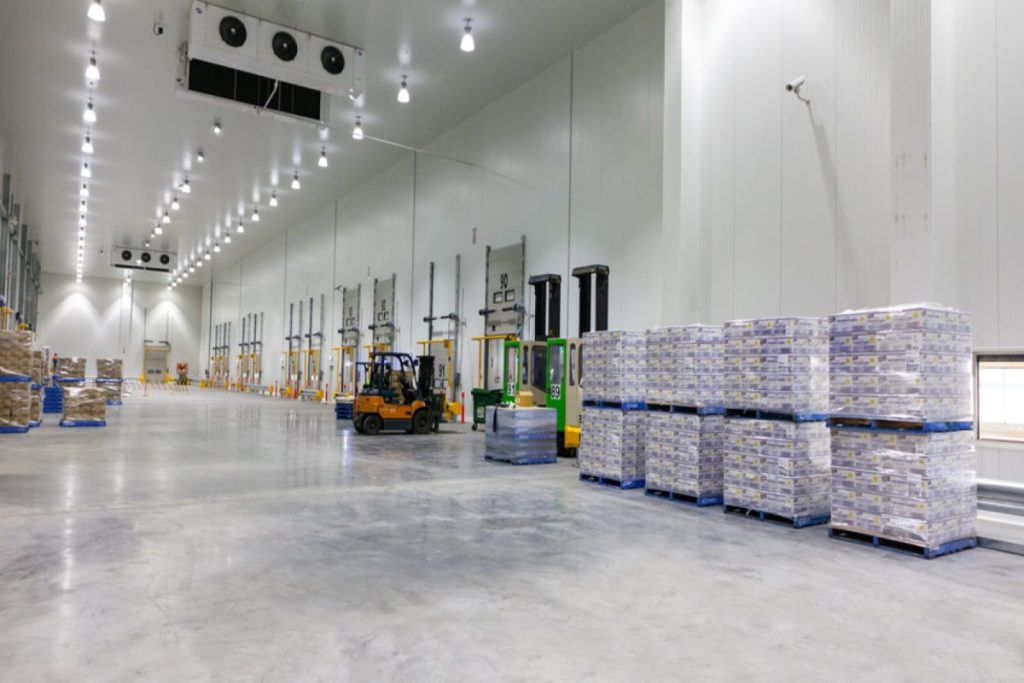Maintaining perishable food items or pharmaceutical products more at the right temperatures will prolong the shelf-life while increasing profitability. It can also protect your consumers from food poisoning or other hazards to their health. Yet, the process of setting up and managing a cold storage facility or truck that can meet this need can be expensive and lengthy.
The biological samples, such as tissues and blood samples, as well as cells DNA, RNA, as well as vaccines require specific cold storage conditions that preserve their integrity and strength.
Refrigerated Warehouses vs Freezers
Two major types of kho lanh cong nghiep facilities are refrigerated, and frozen. These warehouses that are refrigerated, also referred to as chill stores, have temperatures of between 2 and 8 degrees Celsius for the purpose of protecting perishable food items from bacterial growth and prevent losses of cold. These are ideal for the storage of the freshest dairy products and produce.

Frozen warehouses, on the contrary, have sub-zero temperatures, typically below -18 and -25 degrees Celsius they are ideal to store seafood, meats as well as frozen desserts. The frozen warehouse can also house the temperature-sensitive medicines, vaccines, and blood plasma.
Most businesses prefer outsourcing their cold storage needs to third-party logistics firms. As an example, a major restaurant chain may use their cold storage facilities to host the weekly deliveries of of its food ingredients temporarily until it’s time to release the ingredients to every location.
The cost of cold storage is contingent on the factors that determine area, size, time of storage, and additional requirements for services. It’s crucial to pick an establishment that’s close to transportation hubs to streamline logistics and reduce travel times.
Cold Storage Facilities for Perishable Goods
Cold storage facilities allow businesses the ability to extend the shelf-life of perishable goods and also prevent losing inventory. They house and transport temperature-sensitive products, such as food, chemicals, pharmaceuticals, cosmetics and other commodities.
Cold stores make sure that perishable food items remain clean, fresh and safe for consumers. They also provide a one-stop solution for managing wholesale merchandise and make it simpler to track inventory.
To stop contamination and degradation, cold storage warehouses must adhere to stringent standards of safety. They should have fire protection precautions, emergency power backup systems such as security cameras and locked access for anyone who is not authorised. Also, they should have an array of automated techniques that streamline processes and increase effectiveness and precision. The most common are automated storage and retrieval systems, robotic palletizing, and sorting technology. Also, cold shops should be energy-efficient and embrace eco-friendly technologies such as wind turbines and solar panels for minimizing environmental impact as well as reduce operating costs. Also, they must explore blockchain technologies to improve traceability, transparency and accountability for the stakeholders.
Temperature Sensitive Goods Storage
Certain medicines need a certain temperature for their storage and transportation which is why it’s crucial this air be maintained even in ambient temperatures. The medicines that aren’t treated with the proper treatment can suffer their effectiveness or even quality which can affect their efficacy as well as safety once they reach patients.
Temperature controlled warehouses can help prevent these issues by providing insulated and temperature-controlled areas for perishable goods, including pharmaceuticals. Additionally, these warehouses include alarm systems that notify staff when the product crosses the threshold of danger, so they can take corrective measures immediately prior to it becoming too for them to do so.
If the shipment is time-sensitive such as cold chain logistics, the procedure may require multiple legs (and transport methods). Therefore, it’s essential that the facilities with the process are equipped with temperature control capabilities, as in. It ensures that products are safe, cooled and intact throughout their trip from the manufacturer to the final customer. Theft or damage can also wreak havoc on temperature-sensitive goods, so proper security and insurance are crucial.
Benefits of Refrigerated Warehouses and Freezers
The medical and food industries rely on cold storage to preserve the freshness, flavour, and the safety of their merchandise. These facilities have advanced refrigeration equipment that can create precise temperature levels and control. Warehouses can also provide added services like repacking and consolidation to help their customers save shipping expenses.
Food waste is a major concern in the food industry. It is good to know that cold storage warehouses can help reduce the amount of food thrown away through the management of inventory on a first-in, first-out (FIFO) foundation.
A warehouse fitted with automated cranes is able to store many more food pallets in the same area as the manual operation of a facility. It means that less energy is used per square foot, and is much easier to manage inventory. It is a great way to cut down on the cost of food and to reduce the amount of waste that is generated in an environment where profit margins are tight. Additionally, it reduces the building footprint since cold storage warehouses may be placed closer to the produce market and food processing plant.